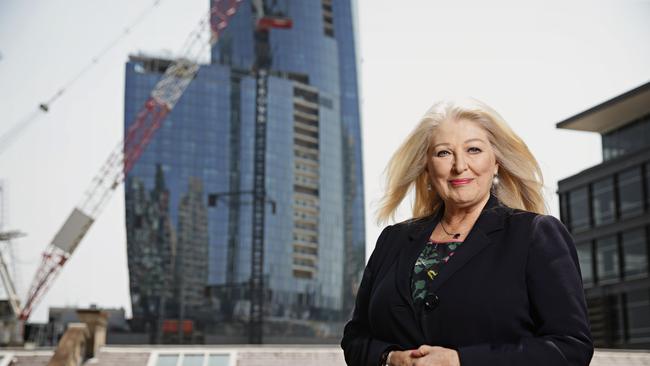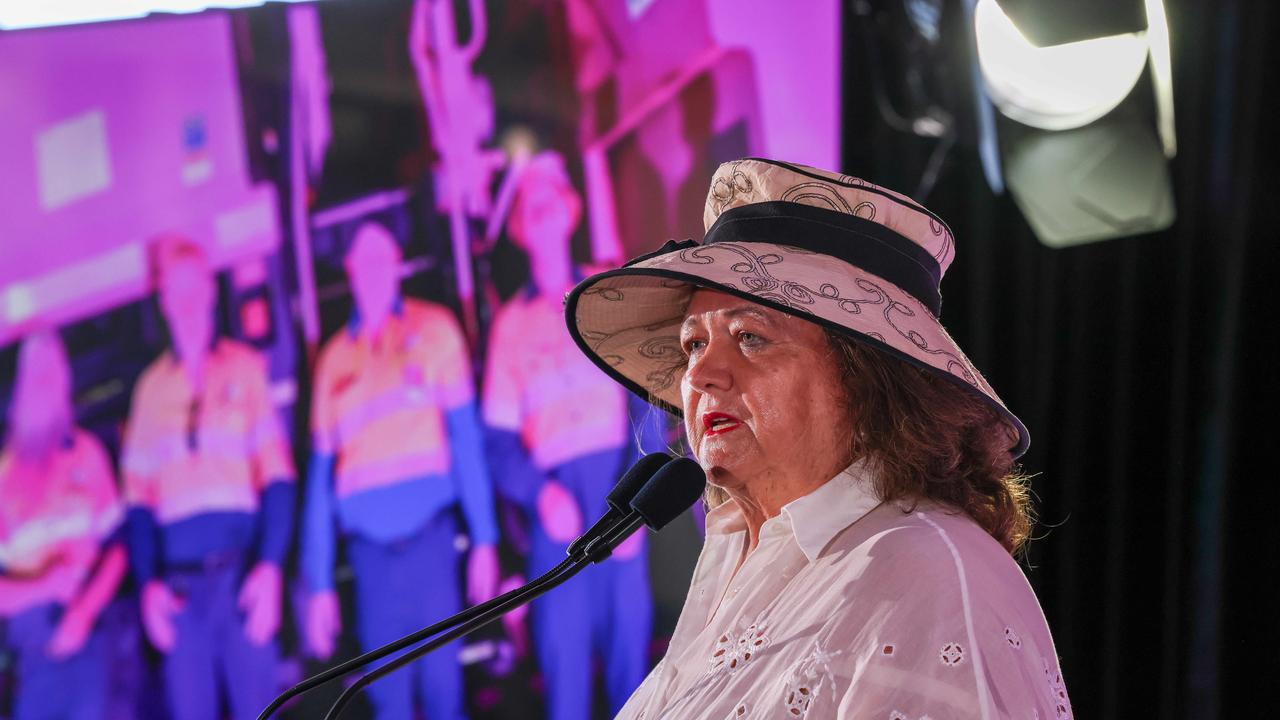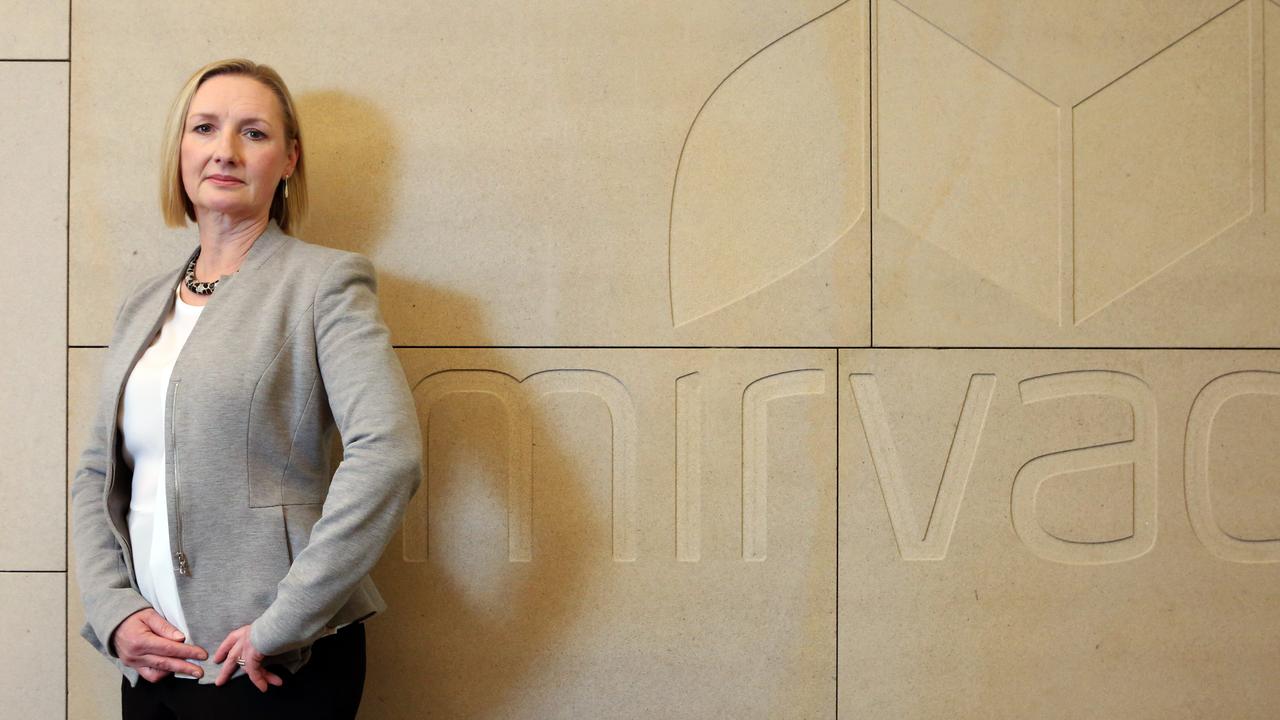
The US fund manager kindly took the regulatory risk off the table by saying once it gets probity clearance it’s ready to play.
Coonan’s defence is based on the old “just say nothing and hope no one is noticing” strategy — she is just playing for time.
Her game is to keep Blackstone’s hands off the assets until the Sydney licence is granted and the WA and Victorian royal commissions peter out.
If all works to her favour then Blackstone would have to pay more.
The US fund is noting Austrac is still running the numbers and could be for months, so just what action it takes is a wildcard.
It’s effectively saying: with so much uncertainty, just take our cash and we will handle the regulatory risk.
At $11.85 a share, barring a regulatory nightmare the bid needs to be raised and Blackstone will be ready to have that argument when it gets probity, which could be as soon as August.
This will be well before the Victorian and WA inquiries are over and who knows with Austrac.
The largest shareholder James Packer, is seen as a seller, as is Perpetual, and something over $12.50 a share would get serious traction.
Blackstone, from what is known, is further down the line in terms of regulatory clearance than other known rival bids, so it all depends on when Coonan comes out from under her desk to face reality.
Healthy ambition
Five years ago former UBS banker David Di Pilla gathered some funds to buy out the failed Masters stores to establish new shopping centres based around big box retailing.
Home Co is now valued at $1.4bn and Di Pilla has a new asset class in his sights — leasebacks on heath properties.
He figures the Australian market is now ripe to follow the US into healthcare financial engineering, with a highly diversified portfolio spanning private hospitals, primary care, childcare, aged care and allied services like myotherapists and blood collectors.
He has $250m in assets already under his wing and his timing is perfect in the wake of COVID and demand for health services only going one way.
While demand increases providers including government will also need support in helping to fund new supply as health precincts like those at Sydney’s Macquarie University and North Shore hospital multiply.
Carbon conundrum
The way Market Advisory Group founder Raphael Wood sees it, risk in the nascent carbon market is hard to measure and his aim is to help solve the problems.
In business banks lend money on receivables with knowledge you will be collecting the funds in time, but the carbon market in Australia is still small and the policy risks large, which makes this difficult.
The more information he can provide, the more conversations can be opened and the risks lowered.
Last month some 135,000 carbon units traded on the spot market at around $18.50 a tonne, compared with $66 a tonne in Europe and $36.90 in New Zealand.
The difference, according to Wood, is a function of demand or lack of it.
On present indications he sees the Australian price on present policies edging up to $35.80 a tonne in 2030, still well below overseas levels.
Wood is part of a growing group of professionals, the carbon club, who are working to develop the opportunities or in his words “fulfil a promise to my kids to do everything I can to reduce the impact of climate on their future”.
He has an eclectic background which makes him well suited for the job, having grown up in Western Sydney, played US football while attending St Mary’s High School before graduating to rugby while at Macquarie Uni in the early 1990s.
A geologist by training, he started work with Straits Resources in copper and gold and then moved into coal and gas in Queensland with McArthur among others.
In the later 1990s he studied finance and then joined the legendary traders at Perth-based Hartley Poynton before moving into wealth management, and around 2008 had an epiphany and decided to apply his market skills to the climate change debate.
Wood joined the Clean Energy Regulator under Chloe Munro and spent time working on the Renewable Energy Target and other carbon pricing tools for then Climate Minister Greg Combet and later Greg Hunt.
After doing his time in government he jumped into the development game, working with James Schultz at Green Collar.
Working around the traps for clients from Shell to BP and Woodside helped him see the need to establish an independent advisory group.
The key was to provide transparency and independence to help clients solve problems.
The way Wood looks at it, “once you have the courage to map out a price graph you are ready to start the conversation”.
The firm now has 18 professionals from different backgrounds helping to solve the problem that carbon risks are hard to measure.
As the market grows it will become more bankable, but for now Wood is helping clients on issues ranging from spot market deals, long term offtakes, joint ventures and partnerships, acquisitions and development opportunities.
It’s all based on analysing the market to better understand the risks.
Fight gets dirty
The warring factions in the West Gate Tunnel dispute have gone to ground but it seems the Victorian government has the biggest issues, with arbitrator Wayne Martin suggesting it should pick up the cost of removing the contaminated solids.
Martin, a former chief justice from WA, handed his non-binding report to the parties last month, pointing the finger at the government as being liable for the extra costs involved.
This spares Transurban, CIMIC and John Holland, but leaves the Victorian government with a problem it didn’t need.
The companies are hiding behind the claimed confidentiality of the report, which if nothing else will shine a light on a practical solution.
Given the delays in the project, while the fight is settled one might have thought it should be made public.
The PFAS-contaminated soil has proved a stumbling block for the project because of changes in government thinking on the danger levels involved.
Martin’s determination was set to say just who is responsible and help set the guidelines. This in turn would play a key part in the government’s attitude to the project and the bargaining position of the contractors and Transurban.
CIMIC and John Holland, the contractors in the West Gate Tunnel project, have helped select a suitable site to dump the contaminated solid after several false starts, with the Victorian EPA selecting a site at Bulla, near Sunbury on Melbourne’s outskirts.






If Crown chair Helen Coonan thought time was on her side in defending the realm, Blackstone has reminded her of the facts.